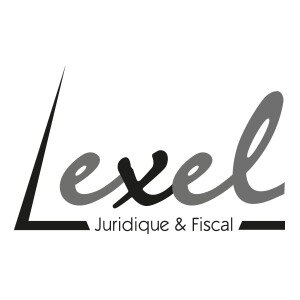Best Structured Finance Lawyers in Madagascar
Share your needs with us, get contacted by law firms.
Free. Takes 2 min.
Or refine your search by selecting a city:
List of the best lawyers in Madagascar
About Structured Finance Law in Madagascar
Structured Finance refers to complex financial transactions that are designed to help businesses, investors, or government entities raise capital or manage risk by pooling financial assets and issuing securities. In Madagascar, structured finance is most commonly associated with areas like project financing, securitization, and syndicated loans. This field is relatively new and developing, often tied to sectors such as banking, infrastructure, real estate, and large-scale projects including mining or transport.
Legal frameworks governing structured finance in Madagascar are influenced by both domestic laws and international standards, especially those shaped by global financial practices and regional economic agreements. The need for structured finance solutions has grown as Madagascar seeks to attract foreign investment and improve its economic infrastructure.
Why You May Need a Lawyer
Structured finance transactions are often complex and involve multiple parties, detailed contracts, and rigorous compliance requirements. Seeking legal support can offer several benefits in the following situations:
- Negotiating and drafting financing agreements for large infrastructure or business projects.
- Ensuring compliance with both local and international financial regulations and standards.
- Navigating tax requirements related to structured finance products.
- Structuring deals to protect assets and minimize risk exposure.
- Advising on securitization and the issuance of asset-backed securities.
- Handling cross-border financing or joint ventures with foreign partners.
- Resolving disputes or litigation arising from financial transactions.
- Conducting due diligence on parties and assets involved in complex financing arrangements.
- Interpreting and staying up-to-date with changes in financial regulations affecting structured transactions.
- Guiding the process of obtaining required government approvals or licenses.
Local Laws Overview
Structured finance in Madagascar operates under a combination of national financial services laws, commercial codes, and regulations inspired by international frameworks such as those recommended by international financial organizations. The following aspects are particularly relevant:
- Banking and Financial Services Regulations: The Central Bank of Madagascar supervises the financial sector, and all structured finance transactions involving banks must comply with local licensing and operational rules.
- Commercial Code: Governs contracts, security interests, guarantees, and insolvency proceedings for businesses involved in structured finance.
- Taxation: Special tax rules apply to interest, dividends, and capital gains, which can significantly impact the cost-effectiveness of structured finance solutions.
- Foreign Exchange Controls: Transactions involving international lenders or investors are subject to foreign exchange regulations managed by the central bank.
- Securities Law: While Madagascar's capital markets are less developed, certain securities laws apply to debt instruments and asset-backed securities.
- Anti-corruption and Anti-money Laundering Rules: Strict compliance is required for all high-value transactions to prevent illicit financial flows.
- Environmental and Labor Compliance for Project Finance: Large projects must also comply with environmental impact assessments and employment laws.
Frequently Asked Questions
What is structured finance?
Structured finance involves advanced financial arrangements, such as securitization or project financing, designed to address specific funding and risk-management needs by pooling assets and creating tailored securities or loans.
Who can use structured finance solutions in Madagascar?
Structured finance can be used by corporations, developers, financial institutions, and sometimes government bodies. It is most common in large-scale projects where traditional lending is insufficient.
Are there restrictions on foreign participation in structured finance deals?
Foreign investors and lenders can participate in structured finance, but they must comply with foreign exchange controls and local banking regulations. Some sectors such as mining or land ownership may have additional restrictions.
What are the typical steps in a structured finance transaction?
Typical steps include identifying the financial need, structuring the deal, conducting due diligence, negotiating and drafting agreements, fulfilling regulatory requirements, and managing ongoing compliance.
What risks should I be aware of in structured finance deals?
Common risks include legal or regulatory non-compliance, credit risk from counterparties, volatility in foreign exchange rates, and project-specific risks such as construction or operational delays.
Is there a need for regulatory approval for structured finance transactions?
Certain transactions, especially those involving large sums or international participants, may require approval from the Central Bank of Madagascar or other regulatory bodies.
How are disputes in structured finance resolved?
Most structured finance contracts include dispute resolution clauses, which may provide for local courts or international arbitration, depending on the specifics of the deal.
Can assets or receivables in Madagascar be securitized?
While the market is developing, it is possible to securitize certain types of assets, subject to the commercial code and relevant securities regulations.
How are financing transactions taxed in Madagascar?
Taxes may apply to interest, dividends, and capital gains from structured finance deals. Withholding taxes and value-added tax (VAT) considerations may also arise, depending on the structure.
What should I look for in choosing a structured finance lawyer in Madagascar?
Choose a lawyer with experience in both local law and international structured finance transactions, familiarity with regulatory requirements, and a strong reputation in the financial sector.
Additional Resources
If you need more information or support regarding structured finance in Madagascar, consider reaching out to the following:
- Central Bank of Madagascar - Responsible for banking sector supervision and foreign exchange control
- Ministry of Economy and Finance - Provides guidance on economic and financial regulations
- Fivmpama (Federation des Chambres de Commerce et d’Industrie de Madagascar) - A resource for business-related legal advice
- The Madagascar Bar Association (Ordre des Avocats) - Directory of licensed attorneys specializing in finance law
- International finance institutions such as the World Bank or African Development Bank for project funding guidelines
Next Steps
If you are considering a structured finance transaction or need legal advice:
- Assess your business needs and the scale of the intended transaction to determine if structured finance is suitable.
- Document the objectives, assets, and parties involved in your transaction.
- Seek an initial consultation with a legal professional qualified in structured finance and familiar with Madagascar’s laws.
- Prepare any available documents for review by your adviser, such as business plans, contracts, or financial statements.
- Confirm the lawyer’s understanding of both local regulatory requirements and international best practices in structured finance.
- Follow legal and regulatory advice carefully to ensure compliance and manage any risks that arise during your transaction.
- Continue to update your legal counsel on any changes to your project or partners to ensure legal arrangements remain robust and compliant.
Structured finance is a powerful tool for businesses and investors in Madagascar, but its complexity demands careful legal oversight. Taking the right steps early can help you unlock opportunities while avoiding legal and financial pitfalls.
Lawzana helps you find the best lawyers and law firms in Madagascar through a curated and pre-screened list of qualified legal professionals. Our platform offers rankings and detailed profiles of attorneys and law firms, allowing you to compare based on practice areas, including Structured Finance, experience, and client feedback.
Each profile includes a description of the firm's areas of practice, client reviews, team members and partners, year of establishment, spoken languages, office locations, contact information, social media presence, and any published articles or resources. Most firms on our platform speak English and are experienced in both local and international legal matters.
Get a quote from top-rated law firms in Madagascar — quickly, securely, and without unnecessary hassle.
Disclaimer:
The information provided on this page is for general informational purposes only and does not constitute legal advice. While we strive to ensure the accuracy and relevance of the content, legal information may change over time, and interpretations of the law can vary. You should always consult with a qualified legal professional for advice specific to your situation.
We disclaim all liability for actions taken or not taken based on the content of this page. If you believe any information is incorrect or outdated, please contact us, and we will review and update it where appropriate.
Browse structured finance law firms by city in Madagascar
Refine your search by selecting a city.














